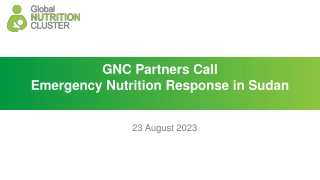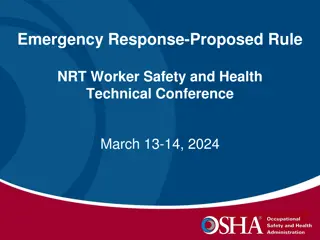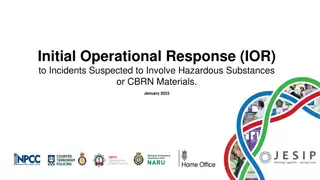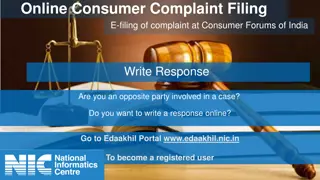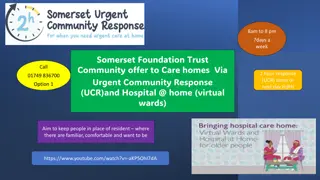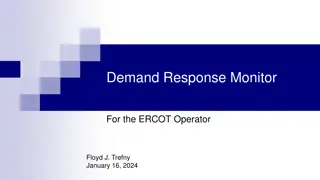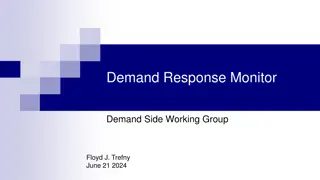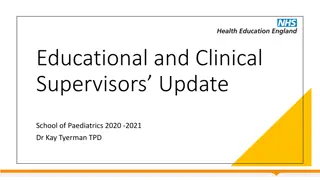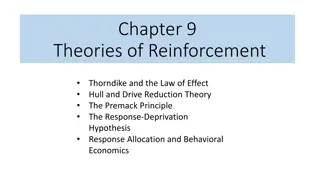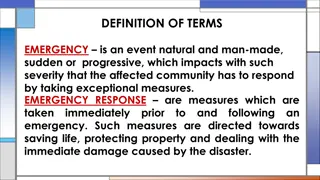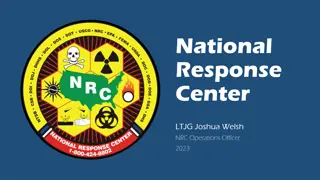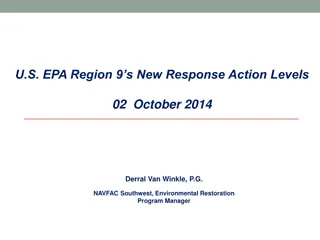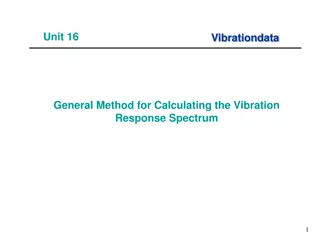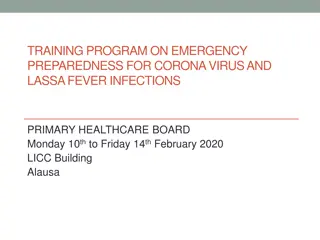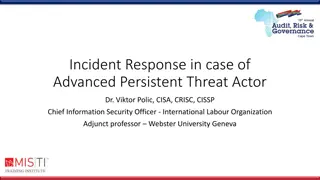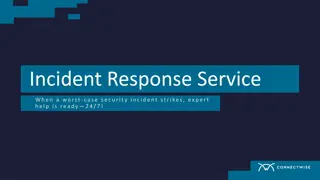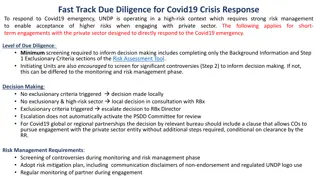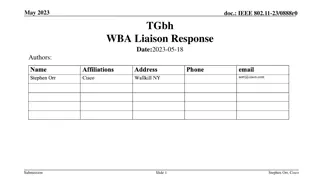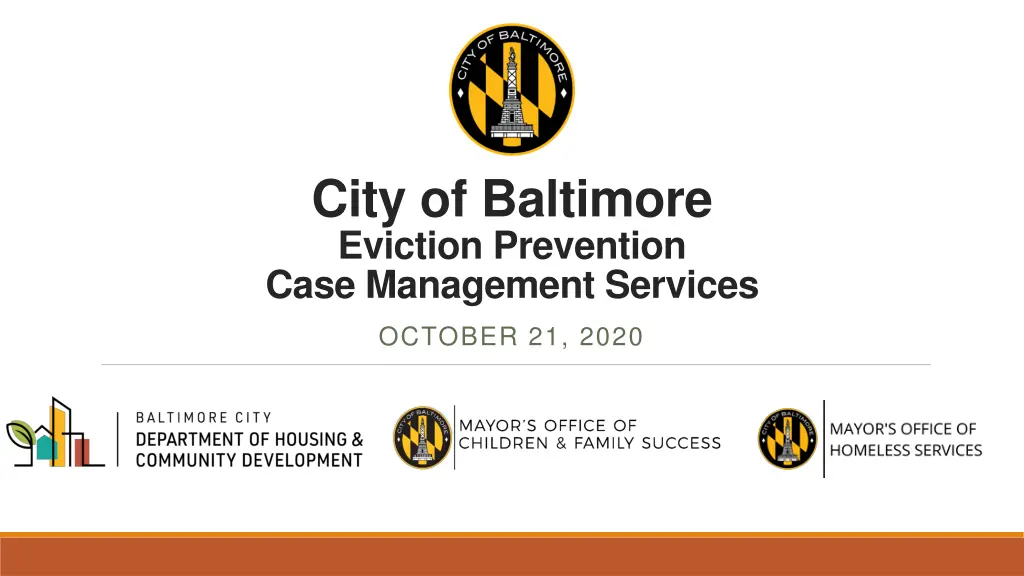
Baltimore Eviction Prevention Services and Resources Update
Learn about Baltimore's evolving response to the rental crisis amid the pandemic recession, including available support services, funding details, and eligibility criteria for households in need of eviction prevention assistance.
Uploaded on | 0 Views
Download Presentation

Please find below an Image/Link to download the presentation.
The content on the website is provided AS IS for your information and personal use only. It may not be sold, licensed, or shared on other websites without obtaining consent from the author. If you encounter any issues during the download, it is possible that the publisher has removed the file from their server.
You are allowed to download the files provided on this website for personal or commercial use, subject to the condition that they are used lawfully. All files are the property of their respective owners.
The content on the website is provided AS IS for your information and personal use only. It may not be sold, licensed, or shared on other websites without obtaining consent from the author.
E N D
Presentation Transcript
City of Baltimore Eviction Prevention Case Management Services OCTOBER 21, 2020
RENTAL CRISIS DEEPENING AS PANDEMIC RECESSION CONTINUES DHCD estimates based on: Maryland Multi-Housing Association US Census Bureau, landlord input
EVOLVING RESPONSE FOR AN EVOLVING CRISIS May - Sep 2020 Oct Dec 2020 Jan 2021 forward Eviction Moratorium in place Courts closed CARES Act financial supports: Federal stimulus. Enhanced unemployment. Courts hearing eviction cases. Judgments will be made but reserved if COVID impact is shown. CARES Act stimulus and enhanced unemployment are over. Economic recession continues to worsen: 46% of households have lost income since March. 24% expect to lose income in September-October. Fall judgments can proceed to w/o further court action. Courts continue hearing eviction cases. Uncertain economic situation. Household reserves lower. Temporary Rent Support (DHCD) Settle crisis-related back rent before courts reopened. Maximize scarce funding: Landlords discount rent. Tenants pay some back rent if got unemployment. No eviction filing for 2 additional months. Adjusted Temporary Rent Support Settle crisis-related back rent before evictions move forward. Increase subsidy to 100% of back rent. Drop requirement that tenants contribute. Drop additional no-file period. CARES Act Back Rent Recovery (MOCFS) Settle crisis-related back rent before evictions move forward. Mayor allocated more flexible funding to streamline process. Covers TRS no-file period, in order to resolve future issues. Eviction Prevention (MOCFS) Support renters who still need help after 2020 interventions. Includes: Back rent OR Relocation services. Case management. Landlords agree not to file for period = covered by program. Eligibility: Low income households. COVID income impact. Back rent Apr-Jun. No unlicensed units. Eligibility: Low income households. COVID income impact. Back rent Apr-Jun. No unlicensed units. Eligibility: COVID income impact. Back rent Mar-Nov. Rents capped. Unlicensed units case by case. Eligibility: Low income households. Back rent up to 6 months. Rents capped. Unlicensed units case by case.
Total Resources Assembled to Date Total of approximately$30 million has been assembled for the City s eviction prevention efforts so far: Up to $10 million in Coronavirus Relief Funds. This will be the primary source used in fall 2020 but will not be available in 2021. (Federal) $13.1 million in CARES Act Community Development Block Grant (includes admin costs). (Federal) $3.4 in CARES Act and regular Emergency Solutions Grant. (Federal) $0.3 million in state Homelessness Solutions Program. (State) $1 million in CARES Act Community Services Block Grant. (Federal) $2.75 million from the City s Affordable Housing Trust Fund, which will be used for households who are not eligible for other sources. (City) The City has also applied for an additional $2 million in State CARES Act CDBG funds to pay back rent.
Department of Housing and Community Development DHCD is using CARES Act Community Development Block Grant funds (CDBG-CV1) to support the following services: Temporary Rent Support program Legal Services for renters facing eviction Case management services for the Eviction Prevention program: Case management and housing search assistance for households that must relocate. Application preparation and case management services for households with limited English or other barriers to access. Intermediary services for case management providers. DHCD will enter into subrecipient agreements for Case Management services and oversee compliance with CDBG program requirements. BCCAP will coordinate with providers on day to day implementation of referrals and services. 1
Mayors Office of Children and Family Success MOCFS leading Back Rent Recovery and longer-term Eviction Prevention programs. Baltimore City Community Action Partnership (BCCAP) will implement the programs, coordinating: Intake and assessment of client eligibility Case management services for households remaining in their units (internal) Case management services for households with barriers to access, including limited English (external) Case management services for households who have to relocate (external providers) Rental assistance payments and, if necessary, assistance with utilities and moves Assistance in accessing other benefits for which households are eligible 3
Client service flow chart (Case manager roles shown in blue) CAP Centers Staff Case management for customers staying in current units BCCAP BCCAP Existing landlord, TRS applicants Pay Clients back rent Eligibility review: ESG, CSBG, CDBG, AHTF Determines funding source for each case request Service Choice: Back rent or Relocation Referral of clients to case management Intake of client information to CAP60 $$ EP Email, phone, post & web inquiries Cuts check to landlords Legal Svcs Providers (Clients who have not already accessed) Clients Unit New landlord, rent, Relo LEP Legal Services deposit, utilities inspections Nonprofit Providers Case Management for: Relocation Limited English & other access barriers $$ Clients Providers-clients with access barriers Pay request
Highlights of role for service providers: Relocation case management Receive customer referrals and information from BCCAP and review case materials to understand household needs. Assist with housing search and application process, to identify appropriate unit(s) for the customer that meet program requirements. When unit identified: Calculate rental assistance at lesser of HUD Fair Market Rent standard or rent reasonableness assessment. Check DHCD database and/or review license provided by landlord to verify unit has a valid rental license. Conduct or request habitability inspection and lead screening (BCCAP may have a standalone provider). Provide rental and move-in assistance: Review lease. Calculate payment level pursuant to program eligibility. Assist customer with utility hook-ups and arrearages, as necessary. Work with customer to arrange moving assistance. Prepare grant letter and submit payment requests for rent, utilities and other costs to BCCAP.
Highlights of role for service providers: Populations with access barriers (incl. LEP) Assist customers in submitting applications for Eviction Prevention assistance: Translation services and provision of other accommodations for client accessibility. Assistance with filling out online forms and properly completing and submitting client information. Assistance with gathering and uploading required documentation. Confirm client eligibility through BCCAP review of application. If a move to a new unit is recommended, scope listed for relocation case management. If household should stay in current unit, case management activities include: Working with household, landlords and tenant legal counsel to determine back rent. Prepare grant agreements. Coordinate move-in and utility hook-ups. Submit payment requests to BCCAP according to program requirements. Work with BCCAP on special situations such as unlicensed units, sublease situations and others.
All selected respondents The scope of the Eviction Prevention program requires a lot of coordination, communication, and feedback. All selected respondents will coordinate with BCCAP and other legal and case management service providers: Facilitate access to services and resources as required by the individual cases to which they are assigned. Report monthly on performance management indicators. Contribute to trouble-shooting and project management discussions. Report quarterly for CDBG compliance (DHCD will use monthly reporting to extent possible). As necessary to protect tenants during Eviction Prevention process, refer customers to legal services.
Highlights of intermediary role The coordination and reporting needed from all service providers will take time and information infrastructure. This can sometimes test the capacity of organizations dedicated to front-line service delivery. To promote efficiencies in this part of the work, the City is accepting proposals for intermediary functions: Collect data on services delivered by the organization s own staff and others (no subgrants to other organizations, however). Develop monthly performance management reports. Summarize and analyze data to produce monthly reports and identify trends, questions and operational or programmatic issues for discussion with the City. Participate in regular performance management meetings with the City and legal service providers. Work with the City to evaluate the effectiveness and outcomes of the Eviction Prevention program and the role of each element of the program in producing those outcomes. Working with the City, coordinate communications about the program among service providers and other stakeholders.
Summary Application is for services starting in 2021, part of the City s longer-term Eviction Prevention program. In 2021, rental assistance will ONLY be made available if a household is at immediate risk of eviction (has adverse court judgment or payment plan negotiated with legal representation). Household income and other requirements will apply. Details of eligibility and program administration will be provided by MOCFS/BCCAP. Respondents may propose to provide relocation case management, case management for populations with barriers to access, and/or one of these with intermediary services. Selected providers will coordinate with BCCAP on day-to-day operations. Selected providers will have subrecipient agreements with DHCD, which will oversee compliance with CDBG requirements. Additional Q/A session next Wednesday, October 28 at 10:30am. Send advance questions to Valerie.piper@baltimorecity.gov Applications due to DHCD November 13 at 5pm EST by email to Lorraine.cannon@baltimorecity.gov. Mail 2 paper copies. REMEMBER: This is a CARES Act program. City will not be able to fund services at this level with regular annual CDBG.


